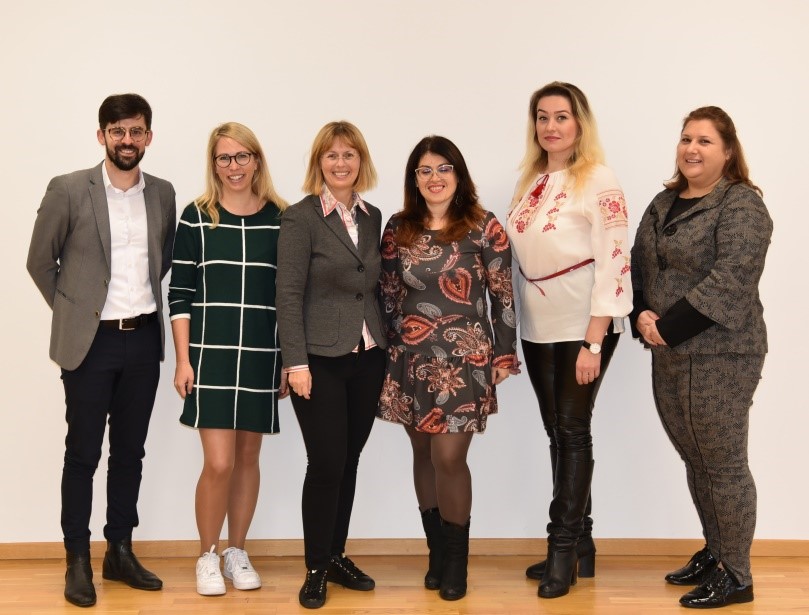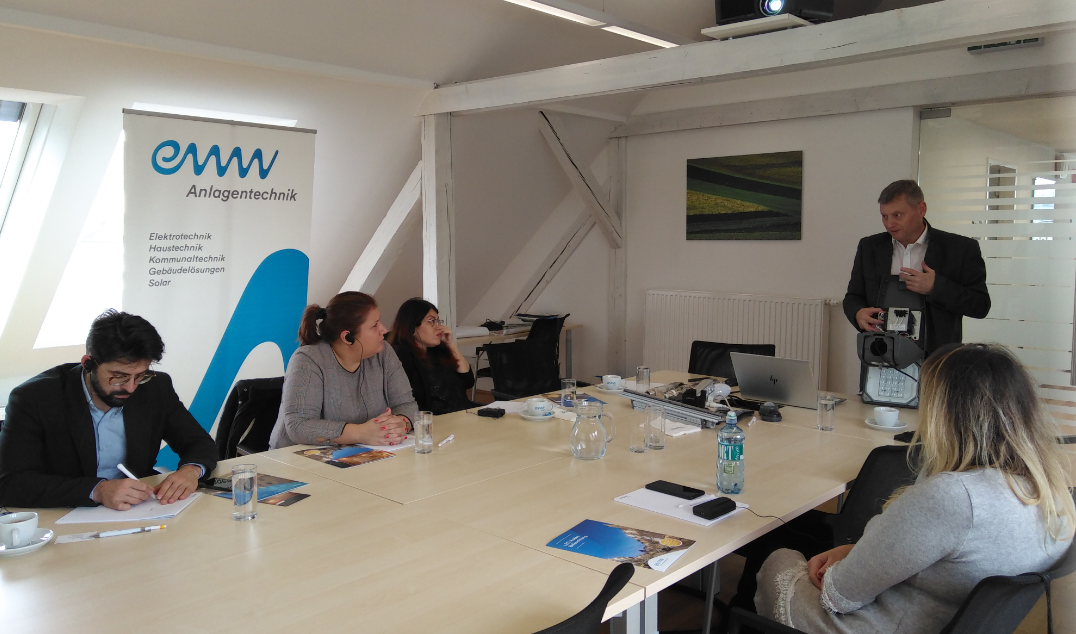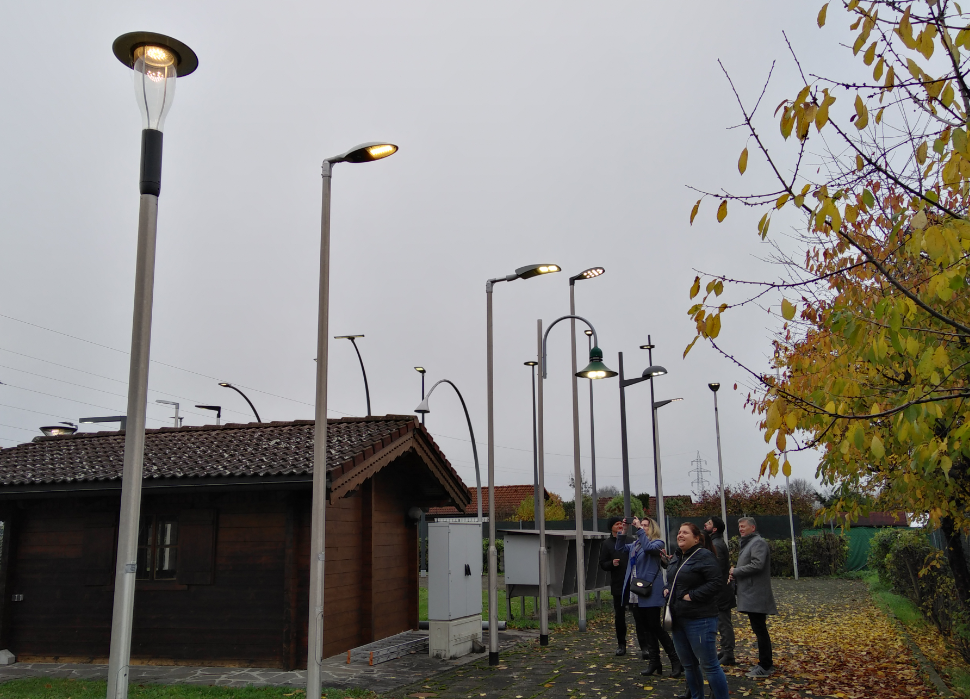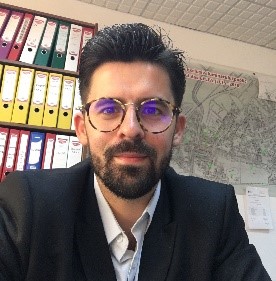ESV mentoring in PROSPECT Learning Cycle 2
Author: Anja Gahleitner (Facilitator Prospect)
In the context of a four step learning programme offered by the Prospect project, the mentor regional energy agency of Upper Austria (ESV) is sharing its expertise on financing and implementing successful EPC streetlighting projects with the mentees Municipality of Nizhyn (Ukraine), the Municipality of Vaslui (Romania) and the Municipality of Burgas (Bulgaria). This constitutes the 6th Group for Public Lighting. The peer learning activities will be focalised on Energy Performance Contracting (EPC).+Mentors' Corner
During the Step 1, on the 16th of April 2019 the team met online. At the meeting, the Mentor representatives presented best practices related to the Learning Group, based on projects, which have already been implemented.
During the Step 2 of the Learning Programme and on the 13th of June 2019 the team met again online. The Mentees presented projects and ideas related to the role of EPC in public lighting. Specific needs to be addressed during the visit by the mentor were discussed as well.
The Mentees visited the ESV in Austria to learn about best practices for Public Lighting
During Step 3 of the Learning Programme, a two-day site visit was organised on the 5th and 6th of November 2019, in Upper Austria. The main objective was to deepen the mentees’ know-how of EPC-related topics and to create an environment for dialogue and exchange on details of the practical implementation of streetlighting refurbishment projects and EPC (Municipality of Bad Schallerbach, Municipality of Gunskirchen, Large-scale conversion to LED in Wels, Gas station "Pink"). The programme focussed on LED streetlighting technology, EPC and funding issues through presentations, the calculation of concrete examples and site visits.

Image: Image: Mandalin Ionut Popa from the Municipality of Vaslui (Romania), Anja Gahleitner/Christiane Egger from OÖ Energiesparverband, Malina Stoyanova from the Municipality of Burgas (Bulgaria),Vira Topikha from the Municipality of Nizhyn (Ukraine), Svetlana Evtimova from the Municipality of Burgas (Bulgaria).
Prior to the site visit, the mentees sent key data on their "candidate" projects. Based on this data, ESV conducted a initial feasibility analysis of the projects economic viability. The results were presented and discussed during the meeting. This permitted partners to transpose the theoretical information they were receiving into the context of their respective regions. Each participant went home with realistic numbers and valuable information about their potential project. This information can be communicated to municipalities and regional leaders to help increase interest in streetlight refurbishment with EPC.

On the second day, one of Upper Austria’s major ESCOs held a detailed presentation about the steps to implement an streetlighting project with EPC, offering partners insight into the world of ESCOs. This session was also complemented by a site visit. First of all, the group visited the "Light Demonstration Street" in Wels, where various lighting technologies and LED luminaires have been set up by the city’s electricity utility (which is also active as ESCO). This was followed by a visit of 2 streetlighting refurbishment projects implemented using EPC (in the City of Wels and the Municipality of Lichtenberg).

Participants benefited from sharing internal know-how (among each other and with the ESV as EPC facilitator) as well as from external inputs provided by a very experienced ESCO from Upper Austria (EWW) and the municipalities.

“The learning programme by the PROSPECT project is a real instrument for municipalities to gain new information and ways of financing the energy efficient projects. But the most valuable is a site meeting, where we were shared with the process of EPC contracting and real examples of implementing ESCO. And all these successful examples really inspire to move forward on the path of energy efficiency.” , Vira Topikha from the Municipality of Nizhyn (Ukraine)

“Energy saved today and the financial instrument offered by an energy performance contracting is an asset for the smart cities in the near future. Vaslui Municipality is engaged in developing professional relationship with other local or regional authorities/public bodies to promote innovative financing models for large-scale and in-depth energy savings in public lighting, buildings and transport.” Mandalin Ionut Popa from the Municipality of Vaslui (Romania)
Replication/Transferability
The 4th and last step of the Programme took place on the 10th of December 2019 and will include an online session dedicated to the assessment and evaluation of the peer learning activities.
Rethinking the financing scheme:
Main impressions and understanding about the financing scheme:
EPC is an economically very interesting option for street lighting
refurbishment, offering high savings with comparatively short payback
times. In many municipalities, energy savings potentials reach 30-70 % and
all risks go to the ESCO.
Energy performance contracting in streetlighting could be a realistic
measure for improving lighting infrastructure. Advanced technology with
LED can offer 30-70% of electrical energy savings from the
public lighting sector. Using external funding sources like Energy
performance contracting EPC, helped municipalities in.
The EPC model can take many forms, making it adaptable to a variety of
specific country contexts.
Key project implementation drivers:
The ESCO guarantees the energy savings in the EPC contract. The annual cost savings are then used to cover the investment and capital costs. After the end of the contract, the client benefits from energy and cost savings.
The key strengths of the financing scheme is that the investment risks are
transferred to other companies than the public municipality, energy savings
are guaranteed by contract, it gives a solution to overcome the obstacle of
lack of capital. The solution brings a new innovative market in the region.
The ESCO guarantees the energy savings in the EPC contract. The annual
cost savings are then used to cover the investment and capital costs. After
the end of the contract, the client benefits from energy and cost savings.
Key project implementation barriers:
- Low technical, financial and contractual know-how within the organisation
- The key weakness of the financing scheme especially for our local region is political and legal challenges as procurement rules and procedures for public authorities because of complex and new tendering procedures. Also a little interest in EPC and lack of understanding of the EPC are identified as barriers.
- Long project development cycle and high financing cost.
- Key policy mechanisms necessary to make ESCOs successful missing in most countries.
Key steps to set up or develop the financing scheme:
- Forget about current contracts.
- Analysis of the current state of lighting system.
- Identification of potential ESCOs
- Dissemination with stakeholders in the region and commercial banks.
- Development of scenarios and comparing EPC with other funding solutions.
- Move away from current contracts.

